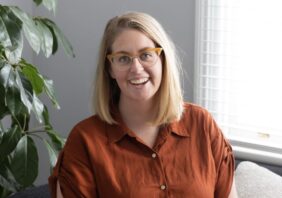Skip to:
Starting or growing your family later in life is increasingly common – but it often comes with questions and concerns about fertility. If you’re in your 30s or 40s and thinking about having children, you are not alone. The good news is that while fertility naturally changes as we age, there are many supportive options available to help you on your journey.

Fertility is closely tied to age, especially for women. In your early 30s, your fertility is still relatively high, but it does begin to gradually decline. By the mid-to-late 30s, the number and quality of your eggs start to decrease more noticeably. By your 40s, conception can become much more challenging, with increased risks such as miscarriage and chromosomal abnormalities.
It’s completely normal to feel worried or unsure about this, but knowledge is power. Understanding these biological changes early, means you can make informed decisions with the right support by your side. Stellar Fertility Clinic Melbourne specialists work closely with patients to tailor plans that match their unique situation, age, and goals.
The path to parenthood looks different for everyone. Thankfully, there’s a wide range of options available depending on your age and personal circumstances. Whether you’re just starting to think about having children or have been trying for a while, understanding your choices is key.
For those in their 30s, natural conception may still be very achievable, especially with healthy lifestyle habits—things like diet, regular exercise, reducing caffeine, smoking/vaping and recreational drug use all play a role. However, if you’ve been trying to conceive for a year without success (or 6 months if you’re over 35) or experience recurrent miscarriage, it’s wise to connect with a fertility specialist.
Treatment options might include ovulation induction (medications to help release eggs) or IVF (in vitro fertilisation) depending on your individual situation. For individuals or couples not ready to conceive or focusing on career, consider preserving your fertility with egg freezing in your early 30s is often encouraged as a proactive step.
While fertility does decline further in your 40s, some individuals and couples can experience success with the right approach and medical guidance. IVF often plays a larger role here, with options such as using your own eggs, donor eggs, or donor embryos depending on your fertility assessment. However it is important to keep in mind IVF is not a guarantee with the success rate for women over 40 achieving pregnancy are less than 30%.
Genetic testing of embryos can also be part of the process, helping to select embryos with the highest chance of leading to a healthy pregnancy.
Knowing when to seek expert help can save you time, emotional energy, and uncertainty. As a general rule:
Proactive fertility checks, such as ovarian reserve testing, pelvic ultrasound, genetic screening or semen analysis, can provide a clear picture of where things stand. Early intervention allows for tailored planning, giving you the best possible chance of success.
Dr. Rachael Knight offers compassionate, personalised fertility care for individuals and couples navigating their 30s and 40s. Based in Melbourne, Dr. Knight takes an evidence-based, empathetic approach- working closely with patients to create treatment plans that respect both the science and your individual goals.
Take the first step today – book a consultation with Dr. Rachael Knight and discover the supportive fertility care you deserve.
